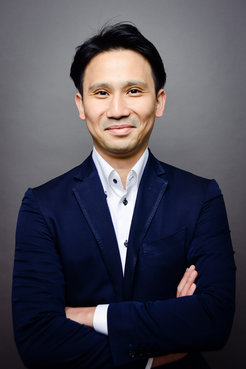Ryohei Thomas Nakano takes up Professorship at Hokkaido University, Japan
Ryohei Thomas Nakano, previously a postdoc with Paul Schulze-Lefert, is now continuing his research as a professor at Hokkaido University in Japan.

Thomas’ research aims to understand the molecular dialog between plants and root-associated microbiota and its impact on root growth and immunity.
Thomas joined the MPIPZ in 2013 as a young postdoc in the group of Paul Schulze-Lefert. During the last years, in collaboration with talented and driven colleagues and collaborators, Thomas could show that the coordination of root growth and defense against harmful microorganisms is strongly influenced by the root-associated microbiota.
Thus, our understanding of root development and root immunity needs to be revised to incorporate root-microbiota interactions, and, toward this end, it is of critical importance to understand the molecular mechanisms by which root microbiota intervene in host root physiology.
During his time at the MPIPZ, Thomas was funded by the Japanese Society for the Promotion of Science (JSPS) and the German Research Foundation (DFG), out of which the last four years were as an independent principal investigator (“Eigene Stelle”).
“The importance of openness and transparency, as well as equality and respect, is the biggest thing I have learned at the MPIPZ besides science, and I am committed to reinforcing this culture at my new institution.”
In his new role at Hokkaido University, Thomas will continue to explore root-microbe interactions with spatiotemporal resolution. He believes that the heterogeneity of roots and microbiota can explain the discriminatory nature of root immunity, which allows it to exclude pathogens while, at the same time, accommodating beneficial microbes.
To test this idea, Thomas and his new group will integrate canonical cell biology and state-of-the-art single-cell technology, followed by molecular genetics to generate mechanistic understanding.
We are wishing Thomas all the best in his new position and are looking forward to learning about his new findings in the field of plant microbiota.












